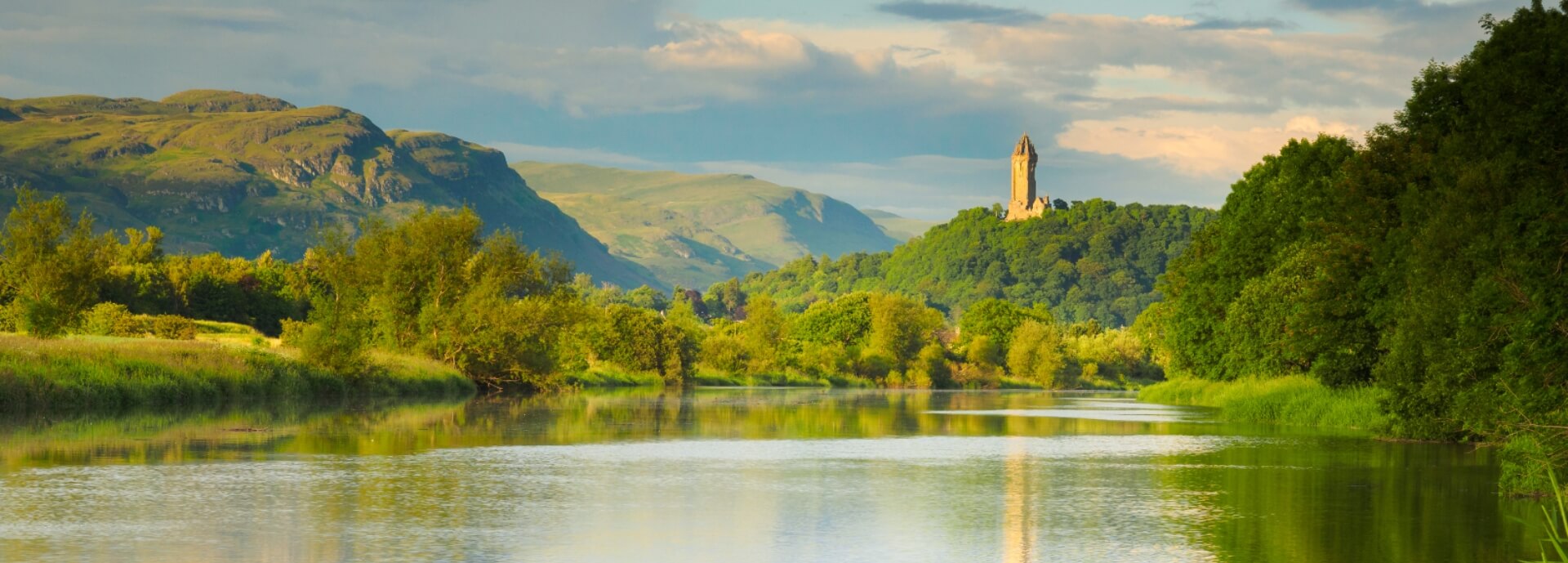University of Stirling to promote better outcomes from water resources for Scottish businesses and communities
Back to news
A team at the University of Stirling is embarking on an extensive study into how water resources in Scotland promote better outcomes for our economy, society and the environment, in a £5 million partnership project to last three years.
Led by the University of Stirling’s Faculty of Social Sciences, the team will consider how water resources can be organised to derive the greatest benefit for Scottish businesses and communities.
Working across the Forth River Basin, the study will consider water’s role in shaping better places to live, improving public health, linking our cultural and natural heritage, and promoting opportunities for businesses in the food and drink, agriculture, tourism, construction, energy and biotechnology sectors.
The programme is one of only four Local Policy Innovation Partnerships (LPIPs) around the UK. The Stirling LPIP has more than 80 partners, including Scottish Water, the Scottish Environmental Protection Agency and Loch Lomond and the Trossachs National Park, as well as Forth Rivers Trust, Forth Ports, Scottish Canals, NatureScot, RSPB Scotland and WWF.
It spans seven local authorities - East Lothian, Edinburgh, West Lothian, Falkirk, Stirling, Clackmannanshire and Fife; the Forth Valley, Lothian and Fife health boards; and Edinburgh, Fife and Forth Valley Chambers of Commerce and further education colleges.
The extensive project, which is funded by UK Research and Innovation (UKRI) as part of its work to create opportunities and improve outcomes locally, brings together researchers from four of the University of Stirling’s five academic faculties: Social Sciences, Natural Sciences, Arts and Humanities and Stirling Management School. They will work together with colleagues at Edinburgh and Heriot-Watt Universities, Scotland’s Rural University College, and the James Hutton Institute.
Professor Richard Simmons of the University of Stirling’s Faculty of Social Sciences, who is leading the project, said: “This is the most extensive study of its kind and we are proud to work with so many important stakeholders. It combines the world-class strengths of Stirling’s social and natural scientists in research that will highlight solutions to improve the health, wealth and wellbeing of local communities, whilst also providing a beacon of innovation for similar water systems and communities across the globe.”
He added: “This is very much a multi-disciplinary study, encompassing business, society and the environment, and how our region’s water resources can be optimised for the things that matter most to us all.”

